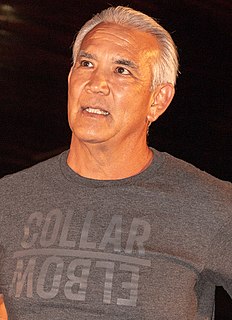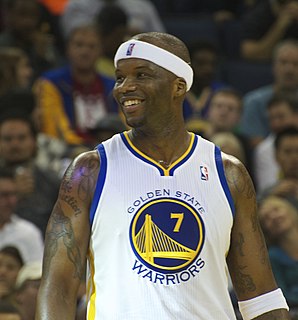A Quote by Mark Price
I think brands should go back to being more specialised and focused on particular market segments. Sometimes the business you don’t do is more important than that which you actually do.
Related Quotes
Technological advances have always been driven more by a mind-set of 'I can' than 'I should' Technologists love to cram maximum functionality into their products. That's 'I can' thinking, which is driven by peer competition and market forces But this approach ignores the far more important question of how the consumer will actually use the device focus on what we should be doing, not just what we can.
The ordinary man is living a very abnormal life, because his values are upside down. Money is more important than meditation; logic is more important than love; mind is more important than heart; power over others is more important than power over one's own being. Mundane things are more important than finding some treasures which death cannot destroy.
There are constraints on what counts as "Reformed." It's more than a name or a label. It's about belonging to a particular theological stream or tradition, which is shaped in important respects by particular thinkers and their work, particular arguments and ideas, a particular community (especially, particular church communities, denominations, and so on), particular liturgies or ways of worshipping and living out the Christian life, and particular confessions that inform the practices of these communities.
The market being in a trend is the main thing that eventually gets us in a trade. That is a pretty simple idea. Being consistent and making sure you do that all the time is probably more important than the particular characteristics you use to define the trend. Whatever method you use to enter trades, the most critical thing is that if there is a major trend, your approach should assure that you get in that trend.
Smart brands never try to appeal to more than their audience group. Assuming you're audience is one of the segments that watches, it's your chance to galvanize this specific group, which is larger here than anywhere else, with a bold new idea that can re-magnetize the human/brand connection for a new year.
If we are to have a stabilized market demand, selling pressure should be maintained . . . perhaps increased . . .at the first sign of a decline in business. I know of no single way business managers can do more to stabilize market demand than through greater stabilization of sales and advertising expenditures.
I think what you see a lot of in American religion, even in areas of American Christianity that don't go all the way with Osteen to the idea that God wants you to have this big house and so on, the nature of American religion right now, the fact that it is so non-denominational and post-denominational, the most successful churches have to be run more like businesses than ever before. I think that just exposes Christians to a constant temptation to think about the ministry more as a business than they sometimes should.
Honestly, some cases have been more famous than others - like Tot Mom, or Steven Avery, or Scott Peterson - but I would not characterize any one as being more special to me, more intriguing, or more important because that would be placing one victim as more important, or one defendant as more [notorious] than others, and I don't think that's right.
The longer I live the more I realize the impact of attitude on life. Attitude, to me, is more important than facts. It is more important than the past, than education, than money, than circumstances, than failures, than successes, than what other people think or say or do. It is more important than appearance, giftedness or skill. It will make or break a company . . . a church . . . a home.
The importance of our being free to do a particular thing has nothing to do with the question of whether we or the majority are ever likely to make use of that particular possibility. To grant no more freedom than all can exercise would be to misconceive its function completely. The freedom that will be used by only one man in a million may be more important to society and more beneficial to the majority than any freedom that we all use.


































